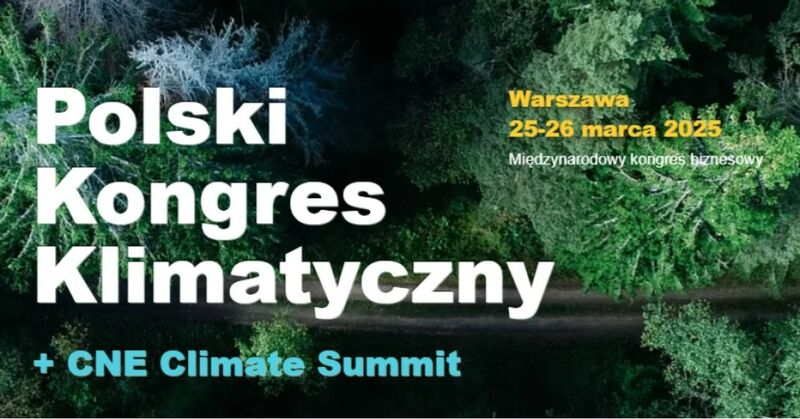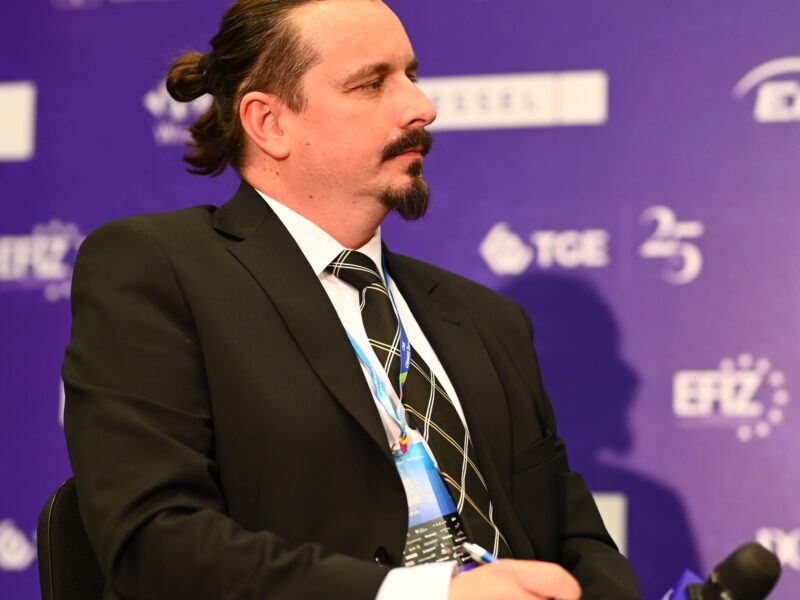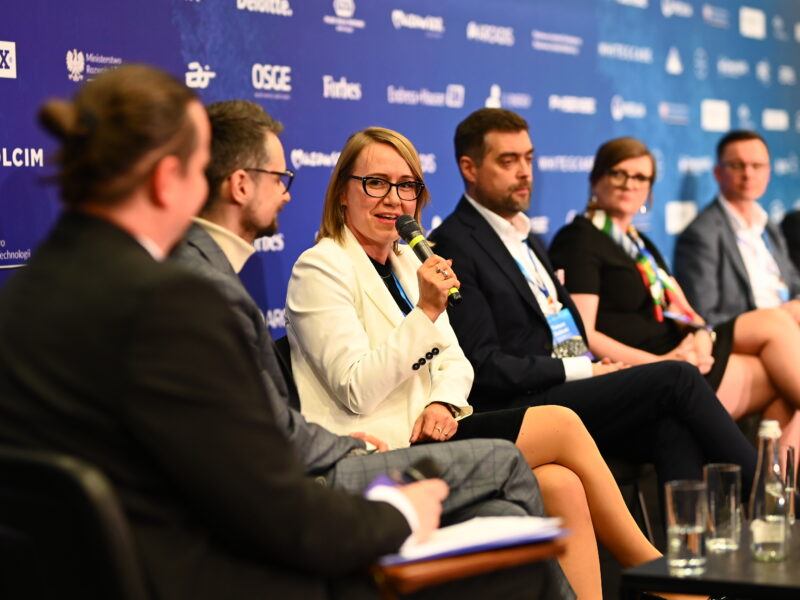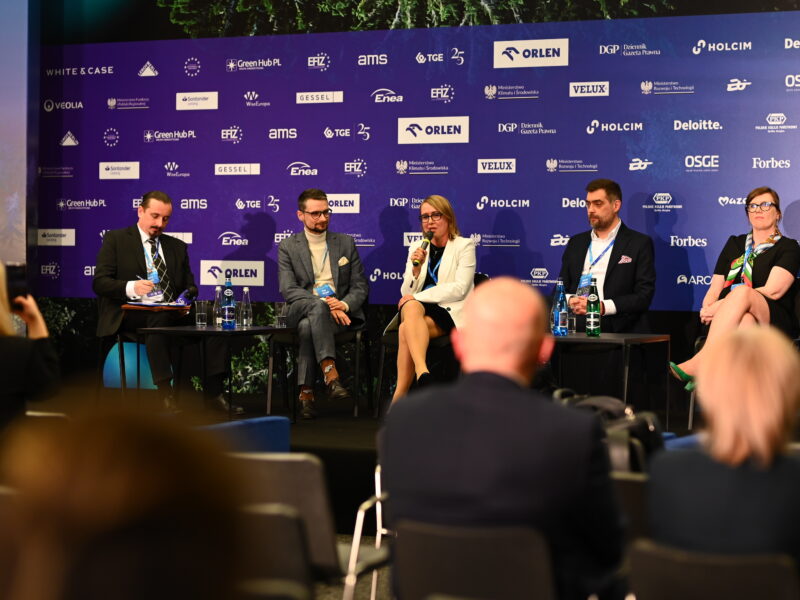CAKE at Polish Climate Congress, 25.03.2025
On 25 March 2025. Robert Jeszke, Deputy Director of IOŚ-PIB for Emissions Management and Head of KOBiZE and CAKE participated in the Polish Climate Congress 2025, during which he moderated a panel entitled ‘Climate and energy transition – will Polish and European industry remain competitive?’. The discussion covered key issues devoted to the challenges and opportunities presented by the European Green Deal, EU climate policy and the changing regulatory environment. The panel brought together leading experts and industry leaders to share their views and recommendations.
The panel comprised prominent experts: Aleksandra Stanek-Kowalczyk (Partner, EY), Anita Bednarek (Sustainability Director, Goodvalley), Tomasz Zieliński (Chairman of the Board, PIPC), Piotr Mikusek, (Grupa Azoty S.A.), Wojciech Kędzia (President of the Management Board, Huta Łabędy), Krzysztof Kutek (Director Water and Climate Change, Arcadis), Bartosz Toczony (Director, Santander Bank Polska).
Against the backdrop of intensifying global economic competition and growing climate protection requirements, the Polish Climate Congress 2025 was the venue for a key debate on the future of industry in the face of the ambitious goals of the European Green Deal. Of particular importance was the discussion during the panel ‘Climate and energy transition – will Polish and European industry remain competitive?’, moderated by Robert Jeszke (KOBiZE / CAKE). Experts representing various industry sectors and financial institutions discussed the key challenges and opportunities related to EU climate policy.
Key findings from the discussion:
- Cheap and accessible energy. The panellists emphasised that maintaining industrial competitiveness requires guaranteeing stable, cheap and accessible energy sources. This is a prerequisite for maintaining the competitiveness of energy-intensive industries such as metallurgy, chemistry or the agri-food sector.
- A stable and transparent regulatory environment. The role of the CBAM mechanism as a tool to protect European industry from the influx of cheaper products from outside the EU was discussed. However, concerns were raised that CBAM alone does not solve all the challenges – especially regarding exports from the EU. According to experts, there is also a need for simplification of existing rules and coherent, far-reaching regulation instead of a constant proliferation of new legal solutions.
- Sharing transition risks. The panellists pointed out that the burdens of transformation should not be borne solely by entrepreneurs. There needs to be a fair sharing of costs and risks between all parties involved, including the state, financial institutions and the private sector.
- Supporting innovation and new technologies. The development of technologies such as CCS, hydrogen, clean steel or energy storage is one of the key elements for increasing competitiveness. Panellists pointed out that, with the right support, they can become a pillar of economic growth and a driver of green transformation.

 Reset ustawień
Reset ustawień Kontrast
Kontrast Widok
Widok Czytelność
Czytelność Czcionka
Czcionka Znaki
Znaki Interlinia
Interlinia Słowa
Słowa Akapity
Akapity Deklaracja dostępności
Deklaracja dostępności













